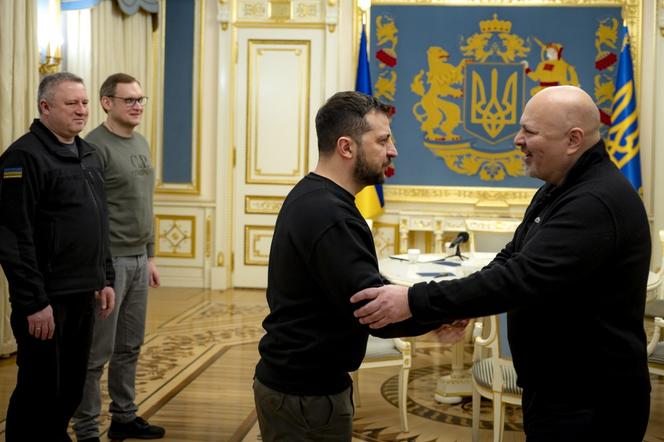


It's taken years, but Ukraine could soon become the 125th member state of the International Criminal Court (ICC). On Thursday, August 15, President Volodymyr Zelensky submitted to the Verkhovna Rada, the Ukrainian parliament, a bill to ratify the Rome Statute, the founding treaty of the court, adopted in 1998 to establish jurisdiction to prosecute individual perpetrators of genocide, crimes against humanity, war crimes and the crime of aggression.
Until now, the Ukrainian army had firmly opposed any adherence to the statutes of this court that came into force in 2002 in The Hague, Netherlands, for fear of its own members being targeted for prosecution in the context of the war unleashed by Russia in 2014. On the other hand, the European Union, whose members have all ratified the treaty signed in Rome in July 1998, has become increasingly insistent concerning the matter. "All the speculation that this will somehow harm Ukraine itself is just speculation, and nothing more," declared Foreign Minister Dmytro Kuleba back in 2023, setting the stage.
Iryna Mudra, deputy head of the office of the Ukrainian president, made the case in an op-ed published Friday on the Ukrainian website European Pravda: "Ratification of the Rome Statute will be a powerful signal of our commitment to European integration." Joining the ICC, she added, "will give Ukraine more opportunities to punish Russian criminals, strengthen its position on the diplomatic stage and (...) Russia's international isolation."
Under pressure from all sides − not least from European Commissioner for Justice Didier Reynders and ICC Prosecutor Karim Khan − the Ukrainian government finally broke the deadlock by invoking Article 124 of the Rome Statute (the treaty essentially serves as the court's penal code). This clause exempts any Ukrainian, civilian or military, from prosecution for war crimes by the ICC for seven years. Fearing possible prosecution in connection with its external peacekeeping operations, France introduced this article during the negotiations leading up to the adoption of the Rome Statute in July 1998. To date, only Paris and Colombia have invoked this article. Ukraine is set to follow suit.
Article 124 also covers the perpetrators of war crimes committed on Ukrainian territory, whatever their nationality, and will therefore apply to Russian soldiers. Nonetheless, the impact of this will be limited, if non-existent. Ukraine has retained the ability to prosecute Russian perpetrators of war crimes in its courts. And Article 124 will only apply once Ukraine is officially a member of the ICC − in other words, three months after the ratified document, once approved by parliament, is submitted to the United Nations in New York. It therefore has no bearing on the six arrest warrants already issued by the ICC against Russian political and military leaders, including President Vladimir Putin. Since March 2023, the Russian head of state has been facing war crimes charges for the deportation of Ukrainian children to Russia and the forcible transfer of children to the occupied zone of Donbas. Among those indicted is former defense minister Sergei Shoigu.
You have 35.91% of this article left to read. The rest is for subscribers only.
